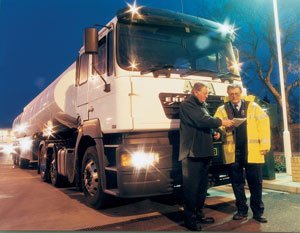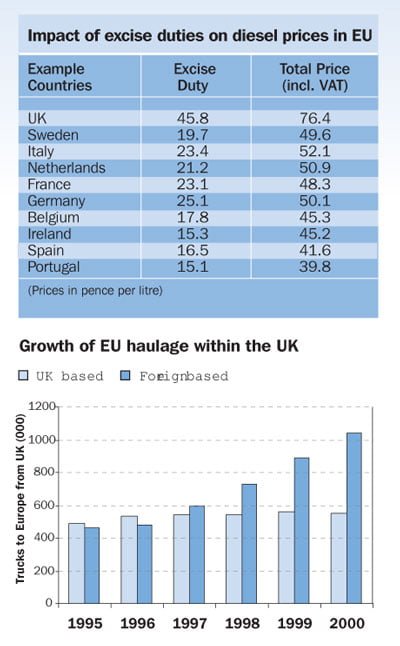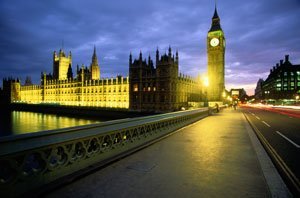
This case study covers the role played by Trade Associations in the UK economy. It draws on examples from four contrasting industrial and service sectors: travel, financial services, electrical contracting and road haulage.
The economy is made up of business sectors, each of which contr-ibutes to consumer welfare. For example, we all benefit from having goods delivered efficiently to our local supermarket (road haulage), being able to open and use a savings account (financial services), having electrical wiring installed safely in any place we live, work or visit (electrical contracting), and being able to make travel arrangements through travel agents (travel).
The role of Trade Associations
Trade Associations:
- Promote the interests of their members
- Create conditions in which the sector can prosper
- Work together for the general good.
They do this by:
- Providing a forum for discussion. This enables member companies to exchange views and identify issues of common concern within the sector
- Representing their members. This includes lobbying Government departments and politicians, media and public relations activity, and distributing information
- Providing services to members. These include supplying current industrial data, business support services and sector-specific training courses.

Trade Associations are funded mainly by their members, most of whom are individual companies and businesses who choose to join – normally there is no compulsion. They are not-for-profit organisations. Each Trade Association is governed by an elected Board or Council comprising trusted and respected leading members from within the sector.
Trade Associations provide a focal point for their sectors and carry out activities which would be difficult or impossible for any single company, no matter how large, to undertake alone. In addition, they provide a means by which companies that are normally in competition with each other can work together for the general good.
Representation

Trade Associations, sometimes working together in alliances, are important pressure groups. They represent the views and interests of their members to politicians and other key individuals and organisations locally, nationally and internationally (particularly at EU level). The dialogue is not one-way. Governments with proposals in mind will normally approach Trade Associations for a view on any important issues likely to affect their particular sector of industry. Trade Associations seek to influence legislation. Recent examples include lobbying the government regarding proposals that are intended to:
- Close down rogue businesses that threaten the image and interests of the travel and tourism industry
- Introduce tougher safety standards within electrical contracting
- Enable UK road haulage firms to compete on more equal terms with firms based in mainland Europe
- Lead to a workable system for monitoring how financial institutions conduct their business.
Where an industry is overseen by a Regulator, the Trade Association will seek close contact with that body too. Trade Associations also look to influence public opinion through the media – e.g. in newspaper articles and television appearances.
Public relations
Trade Associations aim to generate a positive image of their sectors and to provide regular news and information to the media. If the sector is in the news, they are able to provide an authoritative voice. For example, an ABTA representative appeared on UK television to advise on travel to the USA following the terrorist attacks on New York and Washington in September 2001.
Information

Trade Associations are well placed to produce authoritative information and statistics on their industry sector – e.g. guidance on new legislation, new regulations and other technical, legal and commercial developments that may affect members’ businesses. This is an important service for their members. They also supply data to governments and other businesses that use it to inform their own decision-making.
Sector development
Trade Associations play an important, enabling role for their sectors by carrying out activities that will encourage business success. They help develop a strategic vision for their sectors, often working with a range of stakeholders to coordinate mutually beneficial strategic action. Examples include:
- Market analysis – identifying the most promising markets
- Export initiatives – promoting the sector in target markets abroad through exhibitions and trade missions
- Competitiveness initiatives – taking action to increase productivity
- Research – encouraging development and transfer of technology
- Advisory and consultancy services – helping members to improve their business
- Training – collaborating with education and training providers to develop career paths and to prevent damaging skills shortages
- Technical standards – working with standards bodies such as the British Standards Institution and international bodies to ensure compatibility and quality of products and services
- Legal and contractual – establishing forms of contract that facilitate co-operation between firms
- Consumer protection – developing codes of practice and redress mechanisms to increase consumer confidence.
Current challenges

In a very competitive and increasingly globalised world, there are several pressures on Trade Associations themselves. The nature of their sectors regularly changes as new technologies emerge, as new competitors appear and as companies amalgamate through merger or takeover. It is a major challenge for Trade Associations to adapt and anticipate change in order to provide leadership for their sectors and to generate adequate resources to fulfil their role. Increasingly this involves co-operation and partnership.
Trade Associations can learn from each other by sharing best practice. The Trade Association Forum was formed to encourage the development and exchange of best practice information between trade associations.
Travel: ABTA
The Association of British Travel Agents (ABTA) is the second largest travel Trade Association in the world. More than 2000 travel agents and over 600 tour operators are ABTA members. Its logo is recognised by over 80% of the travelling public.
Travel is a vital part of many people’s lives, and so are holidays abroad. Each year millions of people use a travel agent, and 90% of all overseas package holidays are booked through ABTA members. This is for good reason. Things can go wrong and people look to ABTA for the vital consumer protection that it provides.
- ABTA offers a travel advice service to customers – including on-line information – used by more than 65,000 people in 2000/2001.
- ABTA members offer customers important financial protection. Should an ABTA member fail financially before the start of a holiday, then money paid in advance will be refunded. If a company fails while customers are abroad, they will be repatriated at no expense.
- Members must offer the ABTA consumer arbitration scheme which, when there is a dispute, provides redress without the need to go to Court and which resolves over 1,400 cases a year.
- ABTA promotes industry training and members have to comply with a rigorous Code of Conduct committing them to high standards of service.
Although travel agents do not have to be licensed, ABTA has pressed for tighter regulation in the UK and Europe to sustain consumer confidence. ABTA also works with government and members to improve access to travel for disabled people and so help to develop a largely untapped market.
Further information about ABTA can be found at www.abta.com
Road haulage: RHA

The Road Haulage Association (RHA) represents some 9,000 member companies operating over 100,000 vehicles. A significant number of members employ 10 or fewer staff. Transport services are essential in modern economy, and over 80% of the UK’s domestic freight is carried by road. Road haulage is highly regulated: vehicles, operators and drivers are subject to numerous sets of rules. Some of these stem from the EU, others apply solely in the UK.
Transport policy and practice raise big issues. The RHA represents its members when any relevant issue arises. It negotiates continually on behalf of members, not only with national government and the European Commission but daily with local planning committees and regional transport groups etc. These discussions are extremely wide ranging. Recent issues, some still unresolved, include:
- The impact of high diesel duty rates on the competitiveness of the UK haulage industry
- Night working restrictions and their impact on operating efficiency and costs
- The 48 hour working week and its effect on costs and on drivers’ earnings
- Responsibilities of drivers and hauliers regarding illegal immigrants found aboard vehicles.
Support services to RHA members cover specialist advice on all aspects of running a haulage company. They include providing tailored insurance policies, asset finance, legal help, a breakdown recovery service and, through the RHA web-site, data on full or part return loads available in the UK and Europe.
Further information about the Road Haulage Association can be found at www.rha.net
Electrical contracting

The Electrical Contractors Association (ECA) and SELECT (the Trade Association for the electrical, electronics and communications systems industry in Scotland) work to improve industry standards by:
- Promoting high-quality work
- Creating opportunities for advanced training
- Participating in standards-setting bodies.
ECA members employ over 30,000 people and support 8,000 apprentices in their craft training. SELECT members employ 12,000 in Scotland and support 2,400 in craft training. The electrical installation industry provides services to many industry sectors, including building, engineering, offshore, medical and electronics – from plugs to power stations, from fibre optics to factories, from scanners to satellites. The Associations serve the whole electrotechnical industry, including electrical installation, safety & security systems, information technology, telecommunications, electronics and control systems.
Association membership indicates to customers that a contractor is operating within strict quality controls. All members have to meet demanding criteria before being accepted, and are regularly inspected. They must have insurance and abide by codes of conduct. The Associations encourage recognition of the skills in electrical installation work and press government to introduce regulations that enhance public safety and consumer protection. They are heavily involved in schemes to promote training programmes and qualifications that meet national standards. They also promote the electrotechnical Modern Apprenticeship which leads to a National Vocational Qualification (NVQ3) in England, Wales and Northern Ireland, and a Scottish Vocational Qualification (SVQ3) in Scotland.
Further information about these Associations can be found at www.eca.co.uk and www.select.org.uk
Financial services: BSA

The Building Societies Association, (BSA), represents an important sector of the financial services industry. All of the UK’s 65 building societies are BSA members, and 15 million adults have building society savings accounts. The BSA has been a major promoter of the principle of mutuality whereby financial institutions owned by their member-customers are likely to offer a good deal because they do not have external shareholders in search of dividends.
The BSA:
- Helped establish the All-Party Building Societies and Financial Mutuals Group, where interested politicians meet to discuss issues related to mutuality
- Has developed proposals to enable building societies to offer better services to their customers (often involving changes in the laws governing building societies)
- Works closely with UK universities to produce research reports – eg
- On savings, mortgages and mutuality
- Co-operates with the Financial Services Authority to create better industry regulation and improved customer service.
The BSA has discussed with the government and many others ways of tackling key social issues, including:
- Social exclusion – e.g. helping individuals who, being without accounts, have difficulty in paying bills, accessing cash, and insuring their possessions
- Provision of a service in areas where the large banks have closed their branches
- Finding the best ways to advise people having difficulty repaying their loans.
Further information about the Building Societies Association can be found at www.bsa.org.uk
Conclusion
Trade Associations are a key part of the business world, offering consumers better standards, more security and greater peace of mind about the quality of the businesses with which they are dealing. Trade Associations encourage high quality, self-regulation of sectors, better training standards and a stronger voice for those businesses facing external regulation. They also ensure that governments stay in touch with the real world. Clearly, Trade Associations have a vital role to play.
Further information about Trade Associations can be found at www.taforum.org.uk



